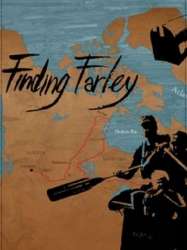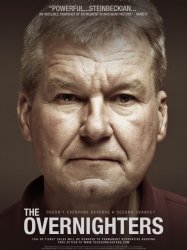Power Trip est un film américain de genre Documentaire
Power Trip (2003)

Si vous aimez ce film, faites-le savoir !
- Infos
- Casting
- Infos techniques
- Photos
- Vidéos
- Passages TV
- Citations
- Personnages
- Musique
- Récompenses
Power Trip is a documentary film by director Paul Devlin that describes the electricity crisis in the country of Georgia shortly after the fall of the Soviet Union. It looks at the chaos and riots that occurred in Tbilisi, Georgia, shortly after the AES Corporation, an American global power company, purchased Telasi, Tbilisi's privatized electricity distribution company. The film exposes corruption in the highest levels of government as well as the plight of the Georgian people as they struggle for power.
Commentaires
Postez un commentaire :
Suggestions de films similaires à Power Trip
Il y a 8856 ayant les mêmes genres cinématographiques, 1027 films qui ont les mêmes thèmes (dont 136 films qui ont les mêmes 3 thèmes que Power Trip), pour avoir au final 70 suggestions de films similaires.Si vous avez aimé Power Trip, vous aimerez sûrement les films similaires suivants :

Radio Bikini (1988)
, 56minutesOrigine Etats-Unis
Genres Documentaire
Thèmes L'environnement, La mer, Transport, Documentaire sur l'environnement, Documentaire sur la guerre, Documentaire historique, Documentaire sur le nucléaire, Documentaire sur les technologies
Note74%






Narmada Diary (1995)
Réalisé par Anand Patwardhan
Genres Documentaire
Thèmes L'environnement, Documentaire sur l'environnement, Documentaire sur les technologies
Note72%






Finding Farley (2009)
, 1h2Origine Canada
Genres Documentaire
Thèmes Film sur un écrivain, L'environnement, La mer, Sport, Transport, Documentaire sur le sport, Documentaire sur l'environnement, Documentaire sur une personnalité, Documentaire sur les technologies, Documentaire sur la nature
Note74%





 , 1h52
, 1h52Origine Etats-Unis
Genres Documentaire
Thèmes L'environnement, Documentaire sur l'environnement, Documentaire sur la guerre, Documentaire historique, Documentaire sur le nucléaire, Documentaire sur les technologies
Note66%






The Overnighters (2014)
, 1h30Origine Etats-Unis
Genres Drame, Documentaire
Thèmes L'environnement, Documentaire sur l'environnement, Documentaire sur les technologies
Note73%





The film depicts the lives of people chasing the dream of high salaries in the North Dakota oil boom, only to discover that affordable housing is almost impossible to find. Much of the focus is on the efforts of local pastor Jay Reinke, who allowed over 1,000 different people to stay at his Williston, North Dakota church over a period of about two years.

White Horse (2008)
, 18minutesOrigine Etats-Unis
Genres Documentaire
Thèmes L'environnement, Documentaire sur l'environnement, Documentaire historique, Documentaire sur le nucléaire, Documentaire sur les technologies, Film catastrophe
Note69%





The beginning of the film starts with DeLeo, Bisson and Surkov driving through Kiev. This is introduced as the beginning of their journey to Pripyat, near the ground zero of Chernobyl. Once they reach the outpost outside the exclusion zone, we see that the area surrounding Pripyat is very deserted and dark. Once in the city, we see Surkov's old home, which he explains has been robbed of almost all its belongings due to looters. Yet there are still some mementos in the old apartment, including the wallpaper he and his mother put up, the training bars his father bought for him, an old rubber ball he claims was his favorite and a white horse poster plastered on the wall of his old bedroom. The pain he feels is evident. When he sees an old calendar on a door, he rips a large portion off, claiming "the year ended on April 26th". Outside the door of the apartment, he remarks how he wishes he could stay forever. He throws his old ball through the door and walks out of the apartment complex. The film ends with Surkov snapping some twigs in an old courtyard and then an image of the car they traveled in leaving the exclusion zone.
 , 53minutes
, 53minutesGenres Documentaire
Thèmes L'environnement, La mer, Transport, Documentaire sur l'environnement, Documentaire sur les technologies
Note79%






Targeting Iran (2013)
, 1h11Origine Etats-Unis
Genres Documentaire
Thèmes L'environnement, Documentaire sur l'environnement, Documentaire sur la guerre, Documentaire historique, Documentaire sur le nucléaire, Documentaire sur la politique, Documentaire sur les technologies, Politique

The Unnamed Zone (2006)
, 1h20Réalisé par Carlos Rodríguez
Genres Documentaire
Thèmes L'environnement, Documentaire sur l'environnement, Documentaire historique, Documentaire sur le nucléaire, Documentaire sur les technologies, Film catastrophe
Note63%





The Spanish film crew led by Carlos Rodriguez is following the life stories of three children - Lidia Pidvalna, Anastasia Pavlenko, and Andriy Kovalchuk - whose lives were drastically changed after an explosion at the Chernobyl Nuclear Power Station on April 26, 1986. Through the documentary, the children and their families "living perilously close to the exclusion zone around the destroyed station recount their fears, dreams, fantasies, and hopes for the future." Each child holds a "Chernobyl certificate" which bestows access to government grants and aid and is a gruesome reminder of their existential reality.

Fractured Land (2016)
Genres Documentaire
Thèmes L'environnement, Documentaire sur le droit, Documentaire sur l'environnement, Documentaire sur les technologies
Note67%





 Connexion
Connexion